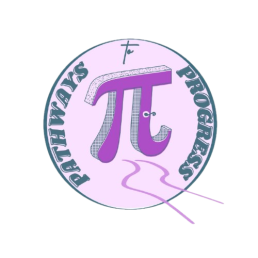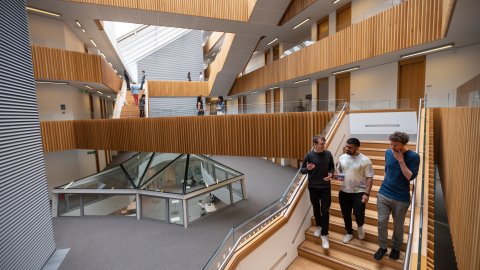11:00
Uniqueness of Dirichlet operators related to stochastic quantisation for the exp(φ)_{2}-model
Abstract
In this talk, we consider Dirichlet forms related to stochastic quantisation for the exp(φ)_{2}-model on the torus. We show strong uniqueness of the corresponding Dirichlet operators by applying an idea of (singular) SPDEs. This talk is based on ongoing joint work with Hirotatsu Nagoji (Kyoto University).
11:00
Scaling limits of stochastic transport equations on manifolds
Abstract
In this talk, I will present the generalization of scaling limit results for stochastic transport equations on torus by Flandoli, Galeati and Luo, to compact manifolds. We consider the stochastic transport equations driven by colored space-time noise(smooth in space, white in time) on a compact Riemannian manifold without boundary. Then we study the scaling limits of stochastic transport equations, tuning the noise in such a way that the space covariance of the noise on the diagonal goes to identity matrix but the covariance operator itself goes to zero, which includes the large scale analysis regime with diffusive scaling.
We obtain different scaling limits depending on the initial data. With space white noise as initial data, the solutions converge in distribution to the solution of a stochastic heat equation with additive noise. With square integrable initial data, the solutions of transport equation converge to the solution of the deterministic heat equation, and we give quantitative estimates on the convergence rate.
11:00
Nonlinear rough Fokker--Planck equations
Abstract
We present an existence and uniqueness result for nonlinear Fokker--Planck equations driven by rough paths. These equations describe the evolution of the probability distributions associated with McKean--Vlasov stochastic dynamics under (rough) common noise. A key motivation comes from the study of interacting particle systems with common noise, where the empirical measure converges to a solution of such a nonlinear equation.
Our approach combines rough path theory and the stochastic sewing techniques with Lions' differential calculus on Wasserstein spaces.
This is joint work with Peter K. Friz and Wilhelm Stannat.
Mathematrix: Board Games Social
Abstract
Come chill out after a busy term and play some board games with us. We'll provide some games but feel free to bring your own!
Mathematrix: What is a minority in Mathematics?
Abstract
A question we get asked all the time! We'll also be discussing the numerous ways our identities as Mathematicians are shaped by being a minority. Free lunch provided.
Oxford Women and Non-Binary in Mathematics Day 2025: Pathways to Progress

Oxford Women and Non-Binary People in Mathematics Day 2025: Pathways to Progress
Saturday 1st March 2025 - 10-4:30 - Mathematical Institute
Building on the success of last year's conference, this year's event, 'Pathways to Progress' will showcase the varied paths that women and non-binary people can take within Maths, from art to teaching to academia to tech. We will be bringing together mathematicians from across the UK for a schedule of talks, workshops, and networking sessions. The aim is to encourage women and non-binary people to pursue careers in Mathematics, to promote women and non-binary role models, and to bring together a community of like-minded people.
This event is open to everyone, regardless of their gender identity. More details can be found on our website https://www.oxwomeninmaths.co.uk/ and the registration form is here.


